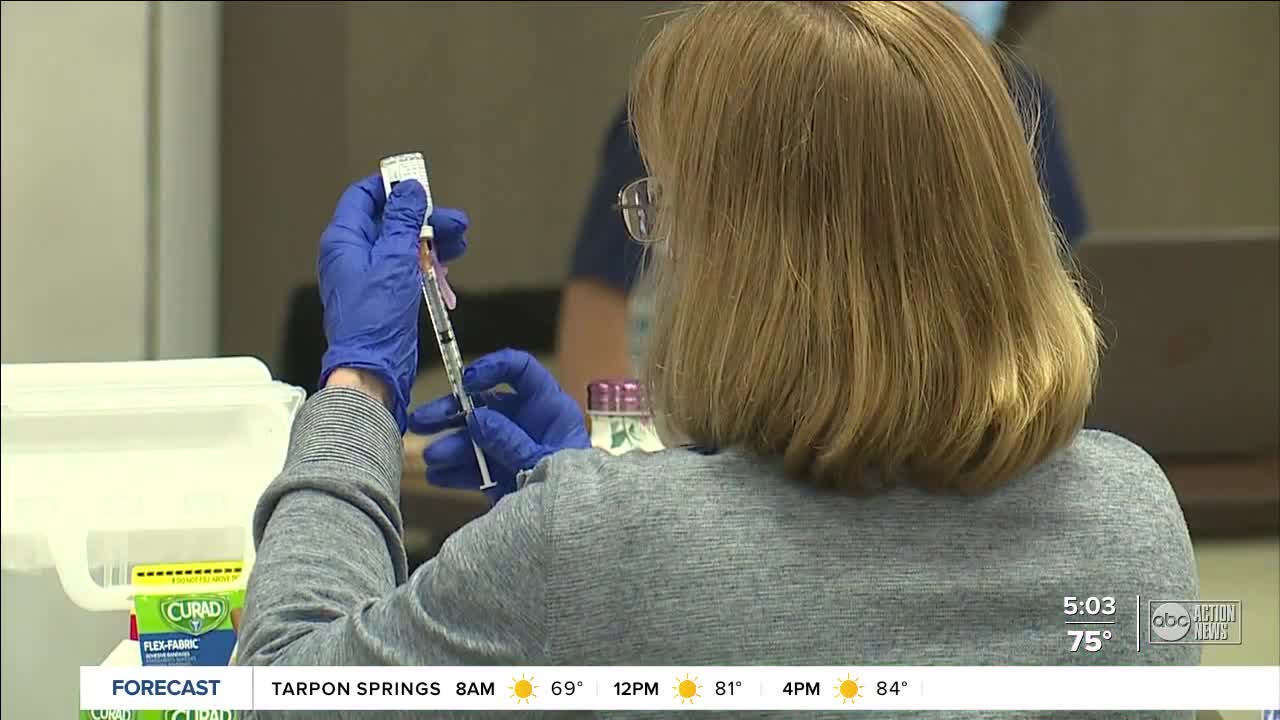TAMPA, Fla. — “There are a lot of people who have been doing it. They’ve been mixing the doses,” said Dr. Jill Roberts, Associate Professor at the University of South Florida College of Public Health.
Doctors say people have been getting different kinds of COVID-19 vaccine shots.
“The biggest concern of course is that we never studied that and so there’s no indication that if you get the Moderna shot, you’re going to boost what Pfizer already did. And so essentially instead of acting like a booster, it acts like a different shot. Almost as if you got vaccinated by something different,” said Roberts.
At this point, Pfizer is the only vaccine that’s been given emergency use authorization to allow certain booster doses.
RECOMMENDED: Merck asks FDA to authorize its promising anti-COVID-19 pill
Experts say that’s why some people who’ve gotten Johnson & Johnson or Moderna shots have chosen to also get a Pfizer booster.
“If you’re concerned, if you really think that you need to have that booster shot, you want to boost the right thing,” said Roberts.
One problem with that is, there are no safety or efficacy data on mixing doses.
“I can’t tell you it worked if you actually did that,” said Roberts.
Doctors say people are also getting extra doses of their Johnson & Johnson or Modern shots, even though booster shots for those vaccines haven’t been authorized yet.
“A lot of us in the age group that we’re talking about right now weren’t even vaccinated until April or May. So we’re not at that eight months time period anyway. So again you need to wait eight months before you get that booster shot so you might as well wait to see what happens with Moderna and J&J,” said Roberts.
How is all of this happening? There was some initial confusion over who could get a booster. Also, experts say because COVID-19 vaccines are available all over, you can get a shot without submitting any medical paperwork.
“So that person who is going to give you the shot or authorize that shot has no idea what your previous dose was or which shot you got before,” said Roberts.
Doctors strongly advise against doing this.
It also prevents researchers from accurately tracking vaccine data.
“Really it kind of creates a problem for monitoring and so we know from the clinical trial the boost looks fine. But until we get out it to thousands and thousands and thousands of people we don’t have a full data set,” said Roberts.
The FDA Advisory Committee is meeting this week to discuss expanding emergency use authorization to include more booster doses.
They’ll talk about Moderna on October 14 and Johnson & Johnson on October 15.
“Always what I would say to anybody if you don’t know what you should do, call your primary care physician and ask. Tell them what your history is. Tell that which shots you have or have not been given and ask them what’s my next step,” said Roberts.




